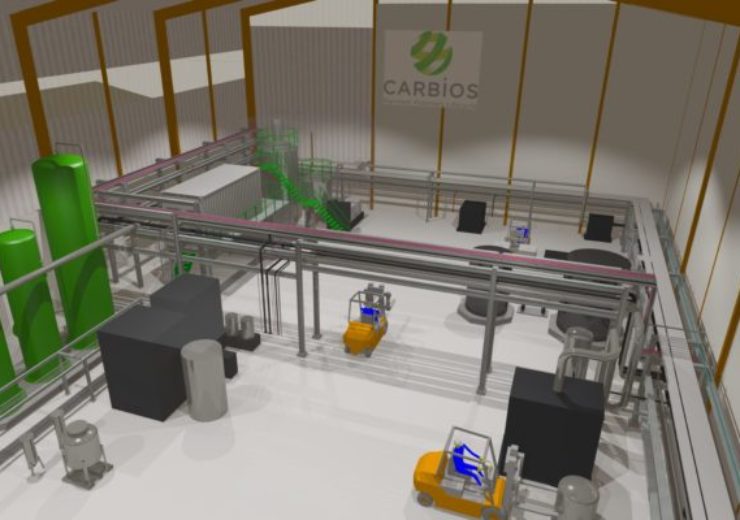The first phase of the project allow Carbios to establish the complete engineering documents for the process, from waste to monomers

Carbios’ demonstration plant is located near Lyon, in France’s Chemistry Valley. (Credit: Carbios)
French green chemistry firm Carbios has commenced construction on industrial demonstration plant for enzymatic recycling process for polyethylene terephthalate (PET) plastics, in France.
Located near Lyon, in France’s Chemistry Valley, the new facility aims to generate technical data, which will be used by Carbios to define the main parameters for each step of the enzymatic recycling process and plan the operation of future industrial units.
TechnipFMC is providing the engineering and construction services for the new demonstration plant.
First phase of the project to be completed in 2Q of 2021
The first phase of the project, which is scheduled for completion second quarter of 2021, allow Carbios to establish the complete engineering documents for the process, from waste to monomers, for the implementation of the first industrial unit for a licensee.
Carbios chief operating officer Martin Stephan said: “Our technology is able to meet a very strong market demand, particularly from the brand-owners of our Consortium, which include companies like L’Oréal, Nestlé Waters, PepsiCo, and Suntory Beverage & Food Europe.
“Each of these, and many other global multi-national firms, have made ambitious commitments towards sustainable development.
“This demonstration plant will be a showcase site to validate the economic and technical performance of our process and to ensure the training of our future licensees.”
In addition to validating the technical, environmental, and economic performance of the technology, the new plant will produce batches of monomers for technical and regulatory validation of recycled PET by future licensees.
Carbios industrial development director Antoine Sévenier said: “The demonstration unit allows us to test different waste streams, and to adapt certain steps of our process to the specification of collection systems.”
